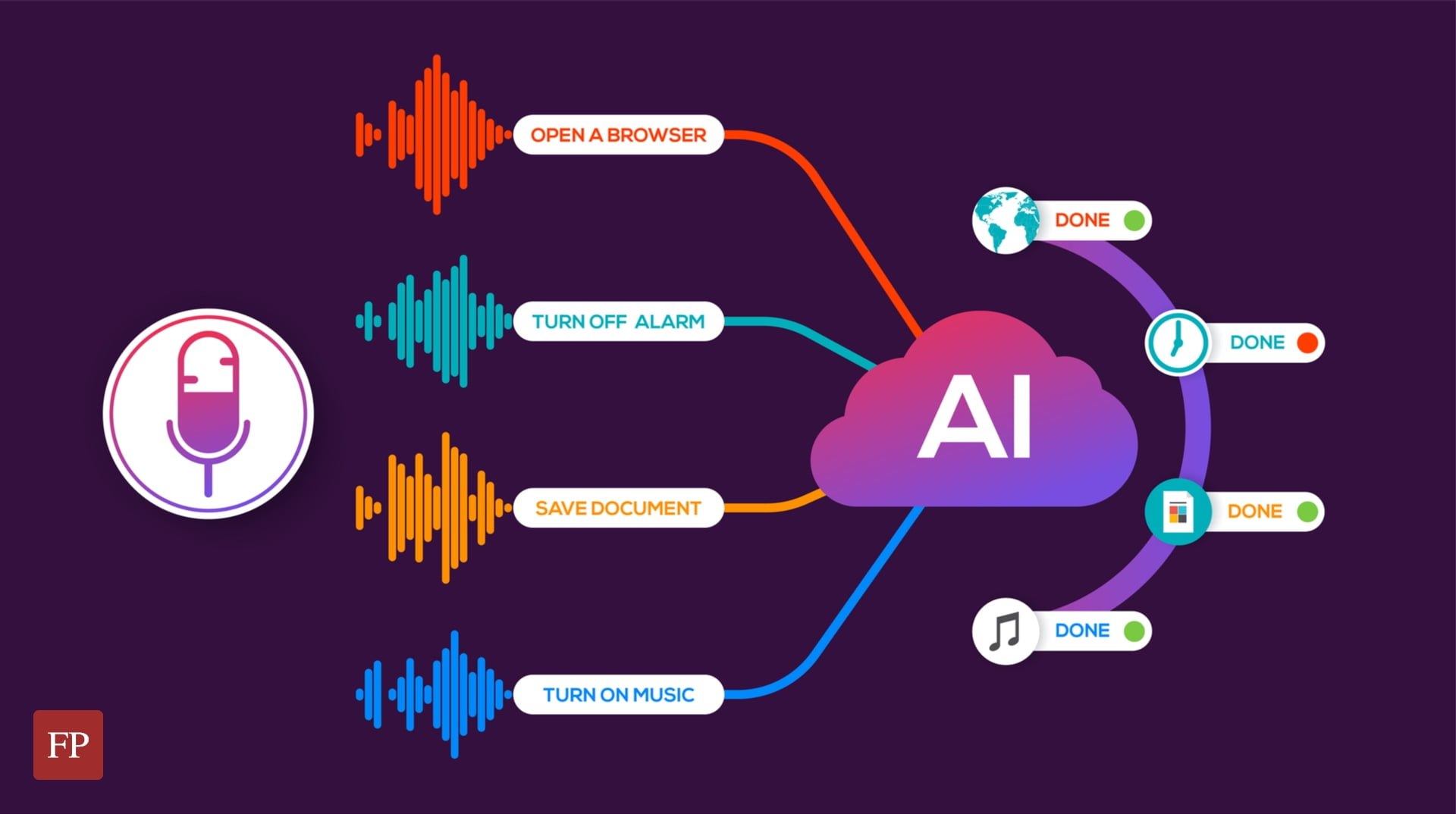Will AI Replace Mechanical Engineers? Risks and Opportunities

A powerful tool has emerged from human ingenuity: Artificial Intelligence (AI). AI is a game-changer for addressing data-driven problems in engineering. Rather than posing the overly broad question, "Will AI replace humans?" we will focus on the inquiry, "Will AI replace mechanical engineers?"
AI's automation potential indeed prompts ethical considerations. For instance, it can substitute human labor in manufacturing with robots managing tasks like assembly and maintenance. This creates a competitive job landscape driven by the need for greater efficiency, to the detriment of less qualified workers.
Artificial Intelligence is also reshaping advanced engineering workflows in various industries. However, automation has less impact at higher skill levels. Software developers have enhanced Machine Learning (ML) algorithms that were unthinkable 10 years ago. Their applications range from AI-assisted design optimization to real-time data analysis. An example of helpful technological advancement is 3D Deep Learning. With 3D Deep Learning, mechanical engineers can tackle complex design issues. Here, automation is a help and not a menace.

The Current State of the Mechanical Engineering Field
Mechanical engineering is a discipline focused on the physical principles and mathematical analysis that govern motion, energy, force, and material behavior.
A few examples:
- Mechanical engineers work on lightweight materials and aerodynamics in the automotive and aerospace sectors.
- Mechanical engineers develop production lines, integrate robotics, and promote technological advancements in manufacturing and automation.

- Mechanical engineers are essential for energy and sustainability, as they design turbines, heat exchangers, and renewable energy systems like wind turbines.
- Furthermore, in the biomedical field, mechanical engineers contribute with their knowledge of mechanics, materials, and fluid mechanics to prosthetics, robotic surgical tools, and the design of artificial organs. Their expertise in fluid dynamics and simulation is deployed in developing blood flow simulations for cardiovascular implants, optimizing drug delivery, and improving the performance of dialysis machines.

Evolution of Jobs
Jobs in mechanical engineering and mechanical design have evolved in roughly three stages:
(1) Mechanical manufacturing or civil engineering design was initially based on manual drafting. Engineers created technical drawings by hand or with drafting machines.
(2) In recent years, the progress of CAD and CAE has introduced the digital engineering approach.
(3) Today, Artificial Intelligence algorithms make mechanical engineering increasingly analytics-driven and automated.
What Are the Risks of AI for Mechanical Engineers?
Integrating AI and automation in mechanical engineering reshapes workflows but also raises concerns. The main problems are job displacement through automation, decision-making reliability, and the limits of machine-driven design. Repetitive tasks, such as basic CAD modeling and routine simulations, are increasingly automated. AI-driven tools streamline these processes, reducing the need for manual input.
Integrating AI into mechanical engineering results in cost savings and enhanced reliability. However, while AI focuses on efficiency, it lacks the creativity inherent in expert engineering work. Although it can speed up processes, it falls short of providing engineering judgment. Automated systems depend on historical data. Engineering requires trade-offs that entail qualitative reasoning, where humans excel.
AI is thus dedicated to repetitive tasks, while engineering encompasses more than just calculations. Human engineers utilize judgment beyond algorithms. AI is a powerful tool whose success depends on collaboration with human expertise.

How AI is Enhancing Mechanical Engineering Careers
Artificial Intelligence (AI) is changing how mechanical engineers work, with concrete impacts on day-to-day tasks. Here's a detailed look:
- How AI helps rather than replaces engineers: AI handles specific computational tasks like stress analysis and thermal simulations that previously took hours or days of engineering time. For example, the Neural Concept AI platform processes predictions while engineers simultaneously adjust design parameters. This shifts engineers' work from running repetitive analyses to interpreting results and making strategic decisions about design trade-offs. See, for example, this white paper from the Eaton Innovation Center on the Optimization of Power Module Cooling Plate.
- AI-powered design automation: Tools like PTC Creo's AI-driven "GDX" (Generative Design Extension) and Autodesk's Fusion 360 with generative design take engineering inputs (load conditions, material constraints, manufacturing methods) and produce multiple viable designs. Aerospace engineers use these tools to redesign aircraft brackets, reducing weight while meeting all safety requirements—the engineer's role shifts to defining constraints and selecting the most practical solutions from AI-generated options.
- AI in predictive engineering analytics: Digital twins, for example, include Siemens Xcelerator's capability to process real-time information from sensors installed on equipment to monitor its health. Engineers use these insights to make informed decisions about maintenance scheduling and design modifications based on actual performance data. AI-powered predictive maintenance systems can predict when equipment might fail and call for human intervention.
The Future of Mechanical Engineering Jobs: AI & Career Opportunities
Industry 4.0 technologies and AI are reshaping roles while creating future opportunities in mechanical engineering.

New Roles Created by AI Technologies
AI created specialized roles that didn't exist a decade ago. AI-driven mechanical design specialists focus on optimizing components using ML. AI model trainers ensure that automation systems learn from engineering datasets.
The World Economic Forum’s “Large Language Models and Jobs” on the impact of Artificial Intelligence and LLMs (Large Language Models) and AI in driving the workforce concluded:
“... LLMs will transform business and the nature of work, displacing some existing jobs, enhancing others and ultimately creating many new roles...”
This insight underscores that new job opportunities created by AI will eventually outnumber the positions that will be lost.

Industry 4.0 and the Future of Mechanical Engineering Careers
In the era of Industry 4.0, mechanical engineering careers are evolving beyond traditional roles in R&D, design, or even manufacturing processes. Mechanical engineers are now orchestrators of cyber-physical solutions that merge the physical world and the digital thread.
How Mechanical Engineers Can Upskill for the AI Era
To thrive in this era, mechanical engineers must embrace continuous learning. This includes mastering AI-assisted design tools and understanding the fundamentals of Machine Learning techniques. Professional development through specialized certifications, online courses, and hands-on projects with emerging technologies ensures engineers remain in the future of manufacturing.
Artificial Intelligence in Mechanical Engineering: Applications
The use of AI in mechanical engineering is part of a debate on the benefits of automation compared to human expertise.
AI technologies have enriched the engineering community with faster problem-solving capabilities. Thanks to technological advancements and AI-driven automation, extensive manual labor and time-consuming calculations can now be accomplished with remarkable speed and precision.

AI Applications in the Design Process
Industrial product design is an iterative process between CAD designers and CAE simulation teams. The Neural Concept Shape platform is an ML technology that promotes cross-team collaboration and helps mechanical engineers reduce the iterative design process. The vast amounts of data owned by automotive and aerospace companies make this collaboration possible. Collaboration fosters progress in mechanical engineering with the democratization of simulation and generative design.
An example of AI's practical applications of Machine Learning in mechanical engineering for designers is its ability to bypass tedious CAD clearing and meshing tasks since an engineering prediction can be instantly made based on a raw input CAD geometry. This enables engineers to prioritize higher-level decisions for optimal configurations. More articles are available on the Neural Concept blog.

Skills for the Future: Adapting to an AI-Driven Industry
Mechanical engineering professionals should develop a hybrid skillset that combines traditional engineering knowledge with technological progress.
Engineers should focus on skills in machine learning techniques and AI-assisted design tools. They should also develop strong data analysis capabilities for AI-driven optimization. Foundations in Python and associated engineering libraries are a must.
Other skills include digital twin technology, IoT, sustainable design processes, and agile project management. Engineers should also focus on risk assessment and ethical considerations. Soft skills are helpful. Future success requires effective collaboration with data scientists and AI specialists alongside systems thinking. This skill enables engineers to grasp complex AI-human workflows.

Thriving in this environment demands continuous learning and the ability to merge classic mechanical engineering with new AI technologies. The aim is not to become an AI expert but to leverage AI tools while upholding engineering fundamentals.
Impact of LLMs on Mechanical Engineering Jobs
LLMs (large language models) are sophisticated AI techniques trained on extensive text corpora. Through Deep Learning, they can understand and generate human-like text. They utilize language patterns for translation, summarization, and dialogue generation, enabling various applications. The role of LLMs in mechanical engineering jobs is significant.

AI tools like LLMs are transforming engineering roles and responsibilities through:
1. Enhanced Design: LLMs can aid engineers by providing insights, generating design specifications, or suggesting improvements based on texts and user prompts.
2. Automated Documentation: LLMs streamline technical document creation, enabling engineers to focus on analysis and design, thanks to natural language processing that automates report generation.
3. Data Insights: LLMs can assist in interpreting reports or generating insights from summaries, but they are not designed for statistical analysis or dataset mining
4. Job Impact: While LLMs create new opportunities, they also pose a risk of displacing jobs in areas suitable for automation, highlighting the importance of creativity and soft skills in engineering.
Conclusion. Will AI Replace Engineers?
Will AI replace mechanical engineers? The near future is bright for engineers. This article has shown how Artificial Intelligence can help engineers but won't replace their critical thinking. In the AI era, the engineering job market is transitioning to concept-driven roles, creating new jobs dedicated to innovation across all industries.
The demand for mechanical engineers has not decreased despite the growing use of AI in the field.
With advancements in AI technology, data scientists and computer scientists play a key role in innovation. Soon, these knowledge workers, along with new job profiles in AI, will focus on creating applications tackling iterative tasks through Deep and Machine learning algorithms. As AI takes over simpler tasks, tackling complex engineering challenges will become critical for human ingenuity.
Computer scientists are generating new opportunities for mechanical engineers involved in manufacturing processes and product development. AI experts provide engineers with AI predictive models that produce valuable before-the-fact insights across the supply chain (OEMs and suppliers). AI technology, such as Neural Concept's, combines archived CAE simulation and CAD information.
Engineers will use Artificial Intelligence by combining AI automation with human expertise. With such a powerful tool enhancing human skills, the mechanical engineering community will use human intuition and creativity to breed innovation.
This approach could introduce a golden age in the industry.
FAQ
In what areas of mechanical engineering is AI most impactful?
AI impacts product development through generative design and simulation speed-up. AI enables monitoring and defect detection (preventive maintenance) in manufacturing environments.
What tasks in mechanical engineering are most susceptible to AI automation?
AI handles calculations, basic CAD modeling, and repetitive analysis tasks. It also automates standard documentation. It can automate design iterations with standardized simulation configurations replaced by Deep Learning surrogates. These functions augment engineer productivity, but they don't replace engineering judgment.
Will AI create new job opportunities in mechanical engineering?
The field needs AI-assisted design specialists, robotics integration engineers, data scientists, software developers, and manufacturing technology experts. Engineers develop AI systems for mechanical applications, verify AI-generated solutions, and connect traditional engineering methods with AI capabilities.
What engineering roles will not be replaced by AI?
Engineering work that requires complex problem-solving, creative design solutions, and human interaction involves expertise. System architecture, conceptual design, and engineering leadership depend on human judgment and strategic thinking beyond AI's capabilities.
Will robots replace engineers?
No. Innovation, critical thinking, and solving complex problems require human insight that AI can't replicate. Engineers direct development while using AI to enhance their capabilities and decisions.



